Climate & Environment
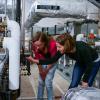 A major research center for sustainable building technology, the Building Energy Smart Technologies (BEST) Center, is a new five-year, multiple-university initiative funded by the National Science Foundation.
A major research center for sustainable building technology, the Building Energy Smart Technologies (BEST) Center, is a new five-year, multiple-university initiative funded by the National Science Foundation.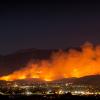 Human-caused emissions of air pollutants fell during last year’s COVID-19 economic slowdowns, improving air quality in some parts of the world, while wildfires and sand and dust storms in 2020 worsened air quality in other places, according to a new report with CIRES co-authors.
Human-caused emissions of air pollutants fell during last year’s COVID-19 economic slowdowns, improving air quality in some parts of the world, while wildfires and sand and dust storms in 2020 worsened air quality in other places, according to a new report with CIRES co-authors.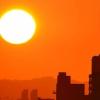 A new report on the global climate confirmed 2020 was among the three warmest years in records dating to the mid-1800s, despite a cooling La Niña influence in the second half of the year. Several CIRES/CU Boulder experts contributed to the report.
A new report on the global climate confirmed 2020 was among the three warmest years in records dating to the mid-1800s, despite a cooling La Niña influence in the second half of the year. Several CIRES/CU Boulder experts contributed to the report.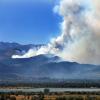 Researchers have been awarded $1.1 million from the U.S. Environmental Protection Agency (EPA) for two projects to help school districts and communities reduce exposure to harmful pollution from wildland fire smoke.
Researchers have been awarded $1.1 million from the U.S. Environmental Protection Agency (EPA) for two projects to help school districts and communities reduce exposure to harmful pollution from wildland fire smoke.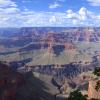 Hundreds of millions of years' worth of rocks have gone missing from the Grand Canyon's geologic record. Geologists are trying to discover why.
Hundreds of millions of years' worth of rocks have gone missing from the Grand Canyon's geologic record. Geologists are trying to discover why.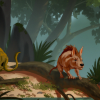 The new species, mouse- to cat-sized ancestors of today's hoofed animals like cattle and deer, offer scientists a new window into what the American West looked like just after the extinction of the dinosaurs.
The new species, mouse- to cat-sized ancestors of today's hoofed animals like cattle and deer, offer scientists a new window into what the American West looked like just after the extinction of the dinosaurs. Researchers at CU Boulder are part of a newly published study that finds that low-rise, high-density environments like those found in Paris are the optimal urban form when looking to reduce greenhouse gas emissions over their whole life cycle.
Researchers at CU Boulder are part of a newly published study that finds that low-rise, high-density environments like those found in Paris are the optimal urban form when looking to reduce greenhouse gas emissions over their whole life cycle.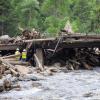 In light of recent Colorado fires, floods and landslides, CU Boulder Today spoke with environmental experts Fernando Rosario-Ortiz and Ben Livneh about how fire may shape the future of water in the West.
In light of recent Colorado fires, floods and landslides, CU Boulder Today spoke with environmental experts Fernando Rosario-Ortiz and Ben Livneh about how fire may shape the future of water in the West.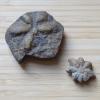 A new study tackles one of the oldest questions in the history of the planet: How did living organisms get so big?
A new study tackles one of the oldest questions in the history of the planet: How did living organisms get so big?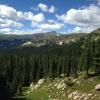 Even in the absence of bark beetle outbreaks and wildfire, trees in Colorado subalpine forests are dying at increasing rates from warmer and drier summer conditions.
Even in the absence of bark beetle outbreaks and wildfire, trees in Colorado subalpine forests are dying at increasing rates from warmer and drier summer conditions.


